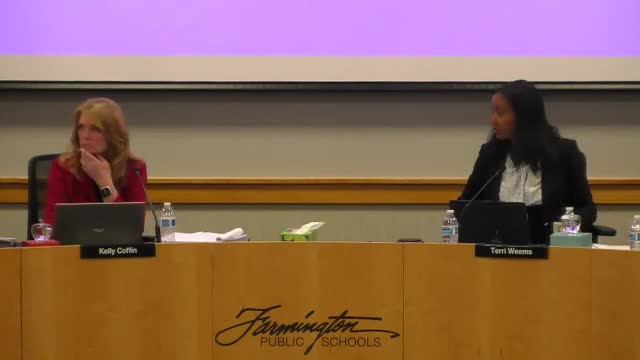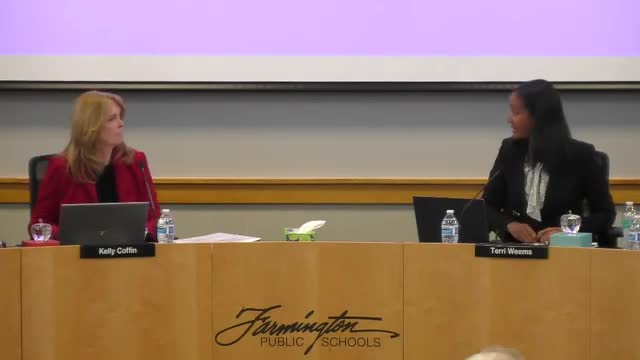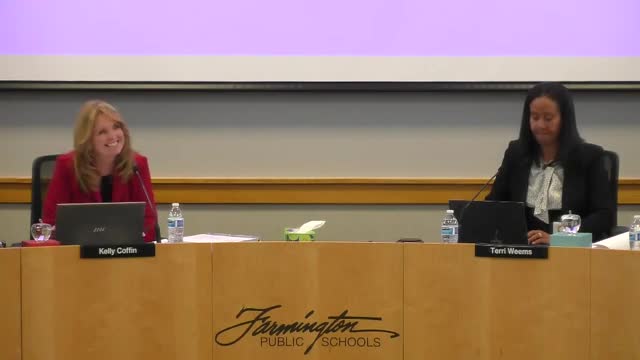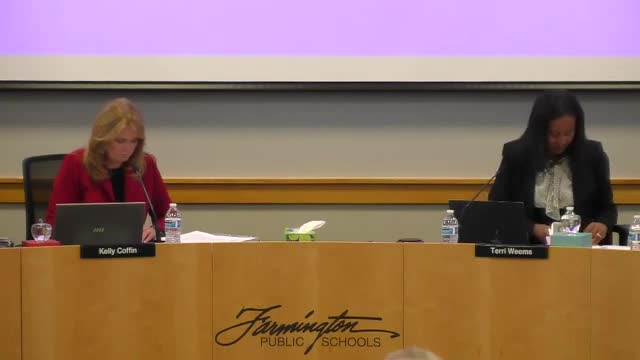Article not found
This article is no longer available. But don't worry—we've gathered other articles that discuss the same topic.

Board actions at a glance: policies, expenditures, consent items; marching band jacket purchase withdrawn

Farmington board recognizes teachers and staff with 'Teaching with Heart' and support staff awards

District presents 2020 bond update and proposes STEM/STEAM multipurpose building; bid pack 17 to finish site work

